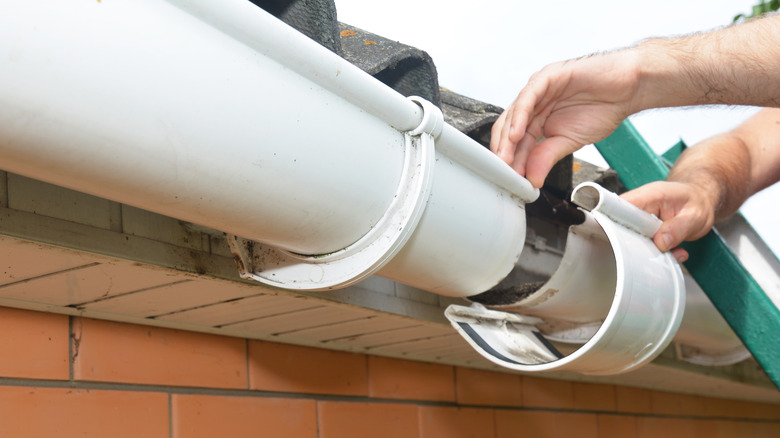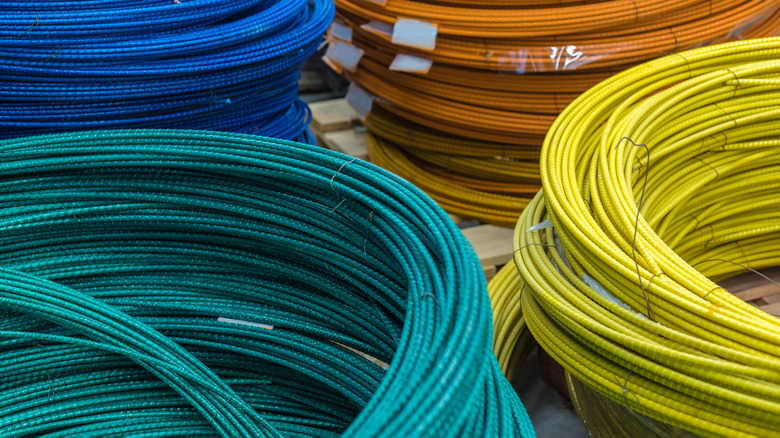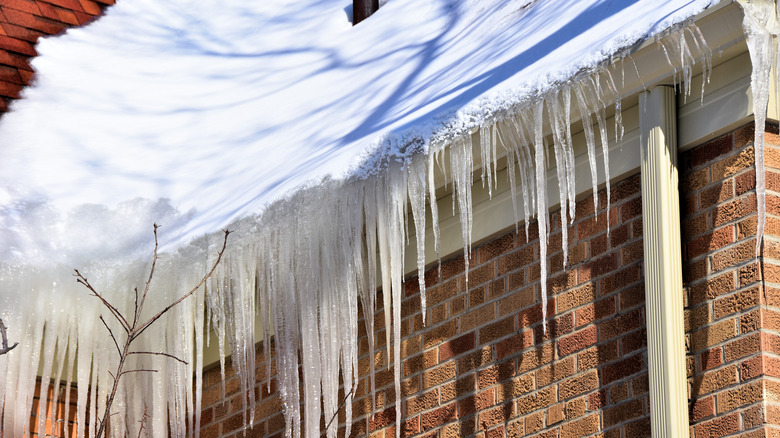Why You Should Consider Replacing Your Old Gutters With Fiberglass Ones
Gutters steer rainwater and melted snow away from a house's roof, walls, and foundation. Without a gutter system in prime condition, your home is at risk of flooding, structural damage, lawn erosion, and pest infestation. Traditionally, gutters have been made of wood, aluminum, vinyl, copper, plastic, or steel. There is now a new challenger: fiberglass. It's a reinforced glass fiber/plastic composite that is lightweight, but durable, sturdy, and rigid. Fiberglass is used in windmills, power boats, surfboards, swimming pools, and gutters, among other applications. In fact, there are many reasons why you should consider replacing your old gutters with fiberglass ones, and they are now a popular feature in new constructions as well.
Per Chemical & Engineering News, fiberglass first gained traction commercially as thermal insulation. It began to be used for gutters in the 1970s, primarily on non-residential buildings. According to Gutter Pro Enterprises, fiberglass gutters' home use dates from the 1990s. Forbes Advisor calculates a $3,000 price tag for gutters and downspouts for the typical American home, more when professionally installed or when replacing existing ones. Perhaps a steep cost on the surface, but not when you consider the potential damage and expense of a gutter-less house. Fiberglass's longevity, resistance to harm from the elements, aesthetic qualities, and cost-effectiveness make it an ideal choice for new or replacement gutters for your home.
Why fiberglass?
According to Design Cost Data, fiberglass has many advantages over its gutter alternatives. Installation is easy, and it does not require painting or oiling, unlike wood. It is relatively maintenance-free, and when all is said and done, its price is competitive with its rivals. Fiberglass does not rust and it resists corrosion, making it better suited than wood, aluminum, or vinyl to stand up to weather extremes. Fiberglass gutters are seamless and don't leak. They are also not particularly vulnerable to salty or humid conditions, the sun's ultraviolet light, or the effects of acid rain. Fiberglass is fire-resistant as well.
Fiberglass gutters also hold a distinct edge over wood ones. They are constructed to have a greater water capacity. Per A Concord Carpenter, wooden gutters require regular maintenance to prevent splitting and cracking. They will dry out without a yearly oil treatment, and they must be cleaned out every six months. In short, wood gutters need much more maintenance than fiberglass ones. Steel and aluminum gutters are also flawed in comparison. Steel ones are extremely heavy, and without regular removal, leaves and other debris will damage aluminum gutters. Fiberglass's long life is also a plus. Steel or aluminum gutters can last 20 years, plastic only 10. In contrast, some fiberglass warranties are for 50 years. Forbes reports some copper gutters have lasted even 100 years, but they are five times more expensive.
More fiberglass positives
Fiberglass gutters will guard against mold, mildew, and siding damage. They will also protect your home's soffit and fascia board, aka the roofline, where the roof and outer walls converge. Animals such as squirrels, raccoons, and mice can gain entry into your house if those places are compromised. Gutters that are intact and functional, particularly fiberglass ones, will prevent that from occurring. Conversely, Sunvek points out that damaged gutters might actually be worse than none at all, as they may create water pools under the fascia or soffit. Faulty gutters, or a lack thereof, can also result in standing water pooling around your house, a perfect breeding ground for mosquitoes.
Bad gutters invite an ice dam, an annoying phenomenon and one that can damage your home's walls, ceilings, and insulation. Ice and snow will gather at the roof's edge and prevent proper drainage when a blockage forms. When it melts, water can back up and leak into your house. With efficient fiberglass gutters, ice dams will be avoided. Plus, you will stay dry when entering your house — no dripping water on you. Moreover, purchasing clog-free fiberglass gutter guards are another line of defense. They will keep pollen, leaves, pine needles, and insect carcasses out of the gutters.


